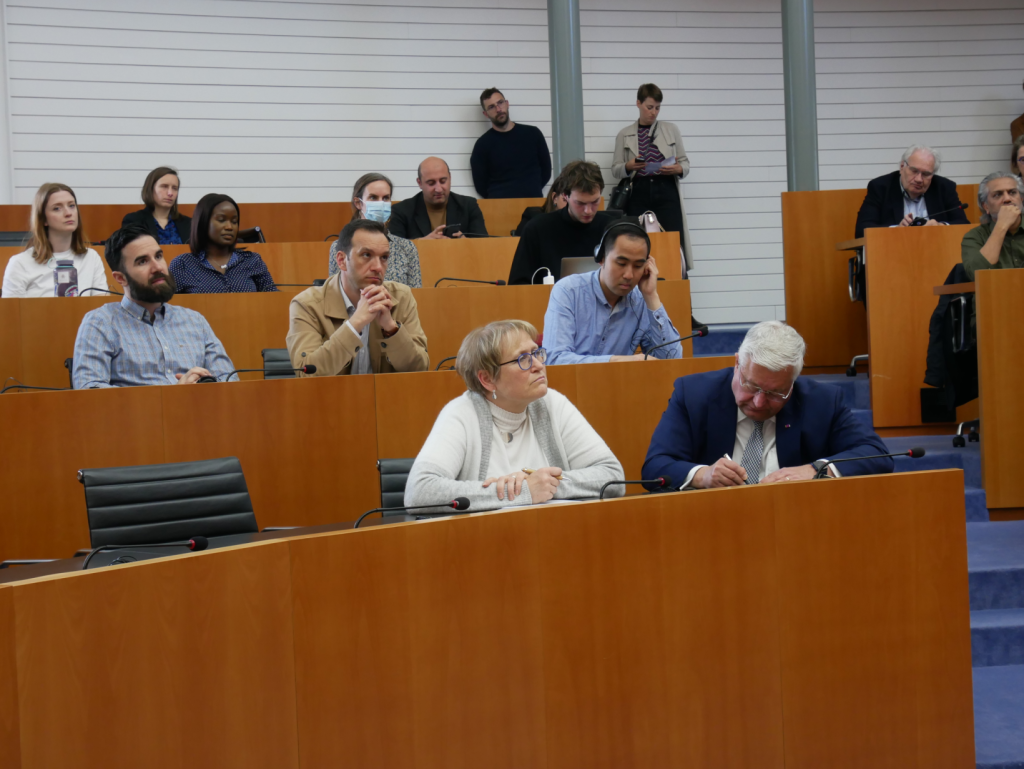Commissioner Brussels is a small public sector organisation funded by the regional government. The idea is to provide a link between the hundreds of thousands of internationals living in Brussels and the local Belgian authorities.
Watkins talks about the “democratic deficit” that ironically lies at the heart of the European Union. The fact is that one in three people in Brussels have no say in many things that directly impact their daily lives. For example, transport, housing, waste management and urban planning more generally.
Right to vote
In 2022, Commissioner Brussels published the Manifesto of the International Brusseler . This is a list of 22 proposals developed by around 1500 online and offline participants. These proposals are the result of their first participative initiative called Live Here, Speak Here, which took place in 2021. Open to non-Belgians and those with dual nationality, this first cycle was organised in collaboration with CitizenLab and involved initial online participation.
“Interestingly, one of the first requests that emerged from this session was the right to vote” explains Watkins. The regional government and the Brussels parliament are supportive of the idea. But it would require constitutional change at a federal level, which makes it complicated.
The online / offline dance
Online consultation helped them identify six central themes or topics of concern. These were then debated by groups of around 10 citizens, off line. Looking back, Watkins agrees that he would like to have found a way to feed the ideas that were raised offline, back to the broader online community. This larger group could then have selected, ranked or prioritised various proposals and fed those back to participants in the room, in an iterative process.
“There could be a real added value in being able to alternate in an iterative way between online and offline participation”, says Watkins. “But once you go offline, it’s quite a challenge to get back online!”. He also points to the limited budget, expertise and manpower available to small organisations like Commissioner Brussels. “I get the feeling that there aren’t many organisations that are doing both in-the-room facilitation and designing the relevant technology platforms, so they exist in two almost slightly parallel eco-systems” admits Watkins.
Limited time and money mean that Brussels Voice 23 will involve only offline deliberative panels. However, they are using the six themes that emerged from the first cycle as a starting point for this participative process. Watkins describes it as “a much more robust deliberative model”. One which has been developed in close partnership with the regional parliament, who are experienced in deliberative democratic processes. Approximately 600 people have registered online for this second cycle. Forty-five of which will be selected at random from this larger group.
Citizens and MPs sit down together to draft proposals
This time, they are also taking steps to ensure a more representative sample. Watkins agrees that many of the international Brusselers are highly educated employees of the EU institutions or related organisations. However, by asking those who register to provide information about their level of education, the area of Brussels in which they live, gender and age, they are hoping to get a more diverse group of participants. They have also reached out to NGOs who work with diverse groups of people to spread word of the initiative.
In this second cycle, participants will attend three workshops, run in English and French. They will then spend a full day at the Brussels parliament working and debating alongside 15 regional MPs to draft proposals. These proposals will be co-signed by the relevant MPs. This doesn’t guarantee implementation. But Watkins is hopeful that these recommendations will then be passed on to the relevant political commission for debate at parliamentary level.
“The idea is that this time we’re really going to drill down and focus on just one or two ideas with the aim of producing some quite specific recommendations,” says Watkins. The 22 recommendations derived from the first cycle showed a fair amount of overlap with the concerns of Belgian residents in Brussels. Watkins wants cycle 2 to focus specifically on concerns of the city’s international community.
Participative democracy is an investment.
It took a year to get a response from the regional government on 21 of the initial 22 proposals. Watkins is pleased that they did finally receive written responses from relevant ministers and state secretaries, in their own names. However, many of the responses draw links with existing concerns raised by Belgian citizens. This makes impact difficult to gauge. It is also one of the reasons that Commissioner Brussels is keen to push forward for change aimed directly at the international community.
